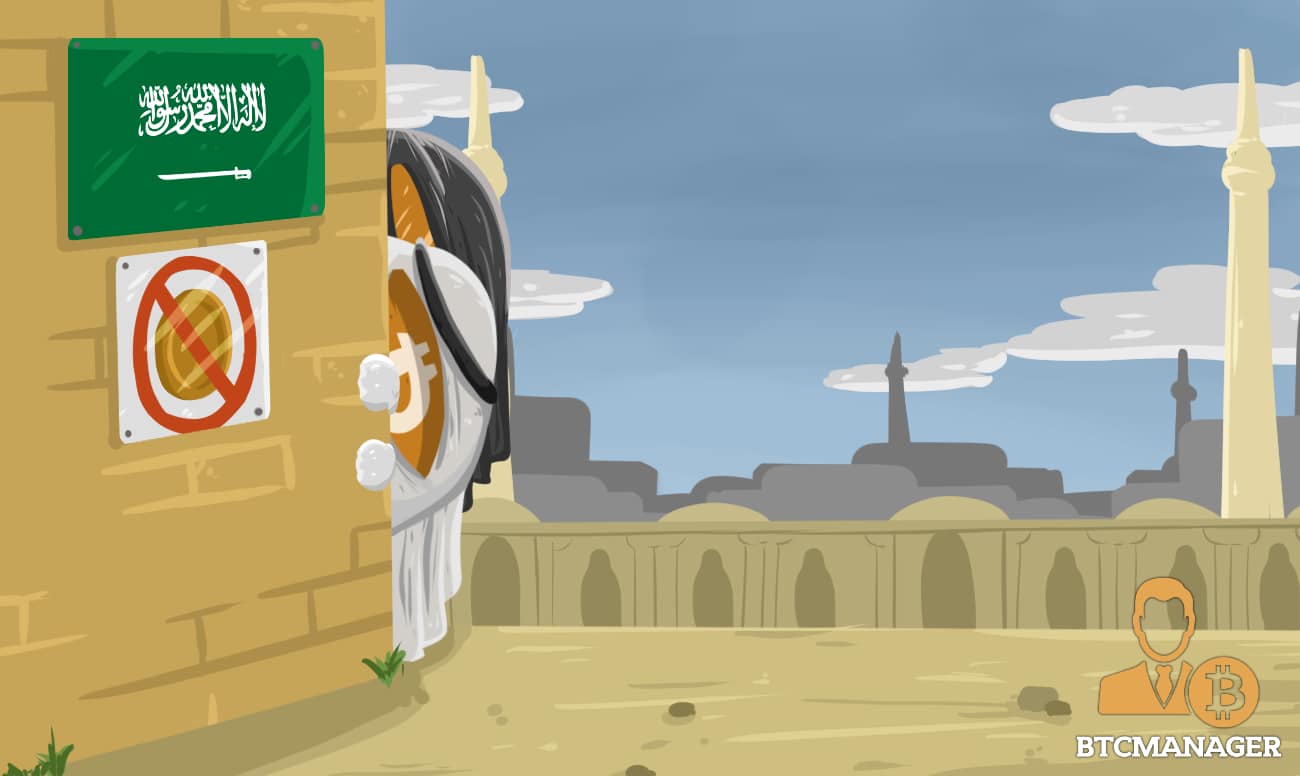Saudi Arabia Declares Bitcoin Trading Is an Illegal Activity

Saudi Arabia’s financial watchdog, the Standing Committee for awareness on dealing in unauthorized securities has stated categorically on August 12, 2018, that cryptocurrency trading is illegal in the kingdom of Saudi Arabia.
Bitcoin is Illegal in the Kingdom
As stated in a press release by the standing committee, it is now officially against the law for citizens and residents of the Kingdom of Saudi Arabia to engage in bitcoin trading as well as trading of digital currencies.
The regulatory body cited the super volatile nature of digital assets, security risks and lack of adequate government regulation as its reasons for placing an embargo on the nascent virtual asset class.
An excerpt from the statement read:
“The committee warns all citizens and residents about drifting after such illusion and get-rich [quick] scheme due to the high regulatory, security and market risks involved.”
The authorities also expressed concerns over the proliferation of scam initial coin offerings and other dubious crypto-based investment schemes.
The supreme decree created the standing committee, and it’s headed by the Capital Market Authority (CMA), which is the Saudi government’s financial regulator that oversees the nation’s capital markets.
It’s worth noting that several other highly reputed ministries in the region, including the interior, media, commerce, and Investment as well as the Saudi Arabian Monetary Authority (SAMA) are also members of the standing committee.
To entirely quell investor interest in digital currency trading as well as Forex trading, the standing committee has been mandated by the supreme decree to work with the relevant agencies and ensure that marketing and promotions for virtual currencies are restricted as much as possible and promptly report defaulters to SAMA or the CMA.
Saudi Crypto Ambition Still Alive?
The standing committee may genuinely be concerned about the safety of Saudi digital currency investors; however, there are still indications that the recent blanket ban on bitcoin and the altcoins may be due to the Arab nation’s ambition to launch its digital currency for transaction and payments.
Back in December 2017, the government of Saudi Arabia and the UAE announced plans to create a joint cryptocurrency and also establish a blockchain-based system for cross-border payments.
While the Saudi Arabian regulators are creatively putting stumbling blocks aimed at stifling the growth of crypto assets in the state, fellow Asian nation Abu Dhabi sees the burgeoning digital assets space quite differently.
On June 29, 2018, BTCManager reported that Abu Dhabi regulators had implemented cryptocurrency regulations in the special economic zone, to protect investors while also encouraging the growth of the industry.
















